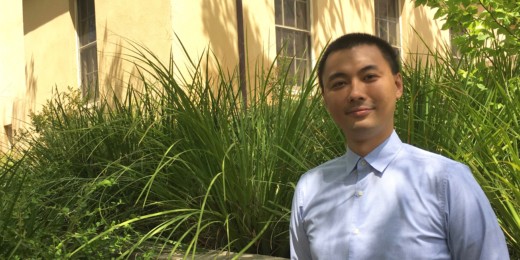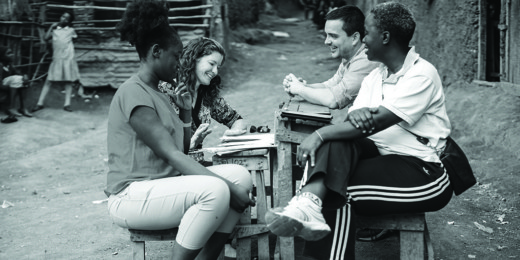Medical student Yoo Jung Kim cautions potential students to learn more about the profession and consider their motivations before applying to med school.
Category: Health Policy
Stars of Stanford Medicine: Improving health care in Japan
This Stars of Stanford Medicine Q&A features Satoshi Maruyama, a Japanese official in the health ministry who is earning a graduate degree at Stanford.
Stopping sexual assaults depends, in part, on statisticians
Stanford statisticians are developing new techniques for understanding how and why sexual assault prevention programs work.
Black men could be healthier if seen by black physicians, new research suggests
Black men are more likely to get follow up care and to mention other health concerns after visiting a black doctor, a new Stanford study has found.
A winning essayist’s tips for keeping track of scientific facts
Could social media — where misinformation is too often spread — be a place to help build trust in science and the research enterprise?
Curbing hepatitis B in the United States will save lives and money, according to a new study
Targeted screening can cut hepatitis B related deaths in the U.S. by half - and save money.
Citizen science research investigates neighborhoods’ effects on well-being
Researchers engaged citizen scientists to take photos and collect other data to investigate how neighborhoods can affect health.
Pediatric medical device approvals need to speed up, says FDA specialist
Children aren’t getting access to many new medical devices, but the U.S. Food and Drug Administration is working to change that.
What brain science tells us about family separations
A Stanford pediatric trauma expert discusses children's separation from their parents at the border and shares how childhood trauma can harm the brain.
Protecting children is up to us: Border policy illustrates need for advocacy
Pediatric resident Jennifer DeCoste-Lopez emphasizes the importance of nurturing caregivers and decries policies that separate children from parents.
At 94, Stanford’s Victor Fuchs celebrates his new book, dispenses wisdom
Victor Fuchs, known for his lifelong contributions to health economics, recently celebrated the publication of his new book "Health Economics and Policy: Selected Writings" with a talk on campus.
Most clinical trial participants find benefits of sharing personal data outweigh risks
Most participants in clinical trials believe the benefits of broadly sharing individual data outweigh the risks, a new Stanford study has found.
Fluctuations of Affordable Care Act enrollees jeopardize market stability
A working paper from Stanford scholars finds evidence that some consumers who buy their own insurance have taken advantage of the ACA provision preventing discrimination based on preexisting conditions to strategically pop in and out of coverage in ACA marketplaces.
Poll: Doctors say electronic health records need overhaul
A majority of primary care doctors report frustration with how electronic health records have affected their relationships with patients and with the amount of time required by the systems, according to a Stanford poll commissioned from The Harris Poll. However, many also say EHRs have led to improved patient care.
Outdated equations lead to incorrect prescriptions for cardiovascular conditions
A team of researchers has updated and improved the equations that guide prescribing decisions for physicians in the U.S. regarding cardiovascular risk.
Causes of physician burnout and way to address it
The president of the Association of American Medical Colleges details factors that contribute to physician burnout and broad cultural changes that can help.
















